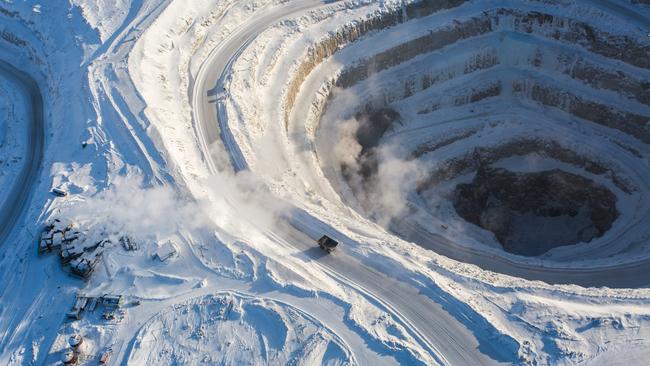Rio Tinto warns climate change threatens viability of its business
Rio Tinto has warned climate change is the biggest threat to its viability as it notes coal exit has given it a point of difference.

Rio Tinto has warned climate change is the biggest threat to the viability of its business and says the sale of its coal operations has given the miner a point of difference with its rivals.
After BHP chief Andrew Mackenzie identified global warming as one of the two top challenges along with drinking water facing the world earlier this month, Rio chairman Simon Thompson said climate change posed a major challenge for the global miner.
“Perhaps the greatest long term threat to Rio Tinto is if business, investors, consumers and especially governments, collectively fail to take action on climate change,” Mr Thompson told investors at a briefing in Sydney today. “Many of the global mega trends that we see today do indeed support demand for our products — for example, urbanisation and the growth of the middle class. But others clearly pose a major threat. In relation to climate change, for example, we are determined to be part of the solution, not part of the problem.”
Rio has previously linked its call to exit coal as one influenced by the implications of climate change on coal supply and demand and said it views that decision as a marker for investors looking for a point of difference.
“The sale of coal gives us a differentiated position versus other mining majors,” Rio chief executive Jean Sebastien Jacques said at the briefing. “The anticipated sale of our interest in Grasberg will reduce, if completed, our sustainability vulnerabilities.”
Rio has previously said it sold its Hunter Valley thermal coal assets (which supply power stations) and its Queensland coking coal mines (which supply steel mills) for a combined $US4 billion because it had better investment options in iron ore, copper and coal. In September it sealed a $US3.5bn ($4.8bn) deal to exit the controversial Grasberg copper and gold mine in Indonesia which has safety and community issues and releases non-toxic mine waste, or tailings, into the local river system, against Rio policy.
Renewed sovereign risk also looms as a problem for its minerals sands units in South Africa and its Oyu Tolgoi copper and gold mine in Mongolia.
At Richards Bay, violent labour disputes between contractors and their employees this year have hit production and the July death of a security guard is being investigated by police.
Richards Bay, which needs to spend about $US500m developing the Zulti South project to maintain zircon production, also faces changes to the mining code in South Africa, where increasing Black Economic Empowerment requirements and new royalties are being considered.
In Mongolia, Rio is in dispute with the government over tax paid on Oyu Tolgoi, while the company has been ordered to find a domestic power source that is expected to mean it will need to build a new power station. There are also anti-corruption investigations around the behaviour of Mongolian officials that signed Oyu Tolgoi’s investment agreements.
Rio’s chairman also conceded legal action from US and Australian authorities over its disclosures in relation to a past acquisition in Mozambique and a Guinea bribery probe from Britain has hit the company’s reputation.
“Integrity is one of our core values, and when I joined the Rio Tinto board four years ago, my perception was that its reputation for integrity was undoubted. That reputation has clearly been dented by the ongoing investigations into the impairment of our coal investment in Mozambique. And payments made to a consultant in relation to the Simandou project in Guinea,” Mr Thompson said. “These events in Mozambique and Guinea took place more than six years ago. And I want to emphasise that the board and the senior management team, under J-S’s leadership, are absolutely aligned on the need to restore Rio Tinto’s reputation for integrity and strong governance.”
Rio said it is co-operating fully with authorities on the scandals but noted the conduct and timing of the investigations was outside its control.





To join the conversation, please log in. Don't have an account? Register
Join the conversation, you are commenting as Logout